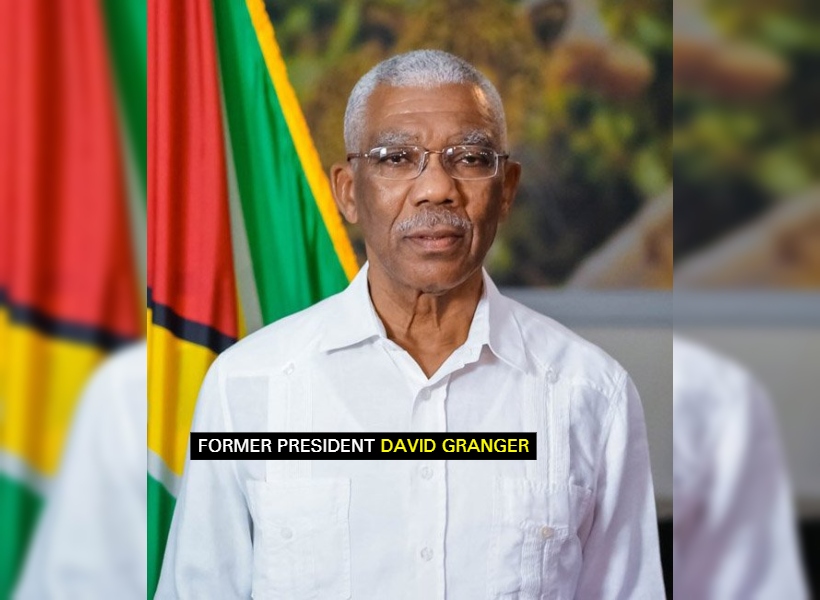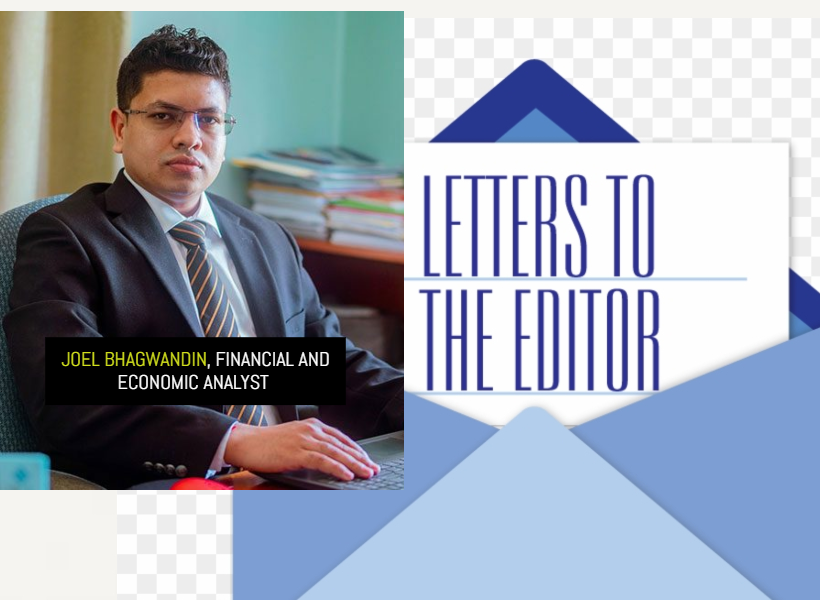Dear Editor,
The author of the Peeping Tom column in the Kaieteur News edition of November 6, 2023, questioned whether the General Secretary of the PPP/C and Vice President, Dr. Bharrat Jagdeo would have done better if his party had negotiated the 2016 Stabroek Block Production Sharing Agreement (PSA).
Moreover, the author subscribed to a notion recently propagated by Chartered Accountant, Mr. Lalbachan Christopher Ram that Dr. Jagdeo, as Opposition Leader, approved of the Coalition’s massive tax concessions to the oil companies. To this end, Lalbachan C. Ram cited former Minister Trotman’s book where he revealed that as the Opposition Leader, Dr. Jagdeo was briefed. Although the book did not divulge too many details of the alleged briefing, one has to be mindful that Mr. Lalbachan Ram is a trained attorney, and as a trained attorney, he has on this occasion sought to skillfully misrepresent and mischaracterize historical events and facts in relation to these matters, which is now being repeated by others like Peeping Tom.
To be “briefed” on a matter is not the same as being invited for a consultation to offer one’s contribution. A briefing simply means that the substantive decisions and agreements have already been finalized. Therefore, it is useless to offer any sort of objection or express any different views at that point, particularly depending on the forum or placewhere this was done. Notwithstanding, it is on record that as Opposition Leader, Dr. Jagdeo had on numerous occasions, and within the appropriate forums―that is, in the National Assembly and his press conferences, expressed his concerns about the badly negotiated Petroleum Agreement (2016). Furthermore, he is on record calling out the APNU/AFC Government for full disclosure by releasing the Agreement within the public domain―following the “leaked correspondence” of and the controversy that surrounded the US$18 million signing bonus that every Government official had denied receipt of.
In June of 2017, Dr. Jagdeo was quoted by the media as saying that his party has a bi partisan approach to the industry in response to attempts by the former Minister Trotman whom he said sought to politicize the issues. It was then that he urged full disclosure of the Agreement. Consequently, the Government published the Petroleum Agreement on December 28, 2017. Then, on January 2, 2018, Dr. Jagdeo at his first press conference for that year wason recordstating that “renegotiating the deal inked between ExxonMobil and its Co-Venture Partners and Guyana may prove to be very difficult even if the PPP/C is re-elected to office in 2020”.
It is important to note, as well, that the consultations that the APNU/AFC Government held in relation to policymaking, and on any national issues during their tenure were often a façade. This was a view expressed by Dr. Jagdeo as Opposition Leader, which I can confirm to be factual. I have personally been involved in budget consultations and more so, submitted on behalf of the Private Sector Commission, contributions towards the local content policy framework.
Yet, none of the private sector’s contributions were ever taken into account in the final outcomes. So, it was a waste of time engaging in any form of consultations with the APNU Government, given that often, it was concluded that they were evidently exercises just for the sake of ticking a box to fallaciously say that consultations were had. But it was nothing of the sort.
With respect to Peeping Tom’s contention on whether a PPP/C Government would have done better in terms of negotiating a better deal had it been in Government in 2016, the existing stock of evidences are overwhelmingly to the contrary. In this regard, in just a matter of three years, the incumbent Government managed to successfully achieve two substantial negotiated outcomes that its predecessor failed to achieve. These are (1) the Local Content Legislation and (2) the Gas-to-Energy (GTE) project, both of which will translate into another US$2 billion (at minimum) in additional direct and indirect benefits to the country. Secondly, there is a new model Production Sharing Agreement (PSA) with substantially improved fiscal terms that will significantly increase the Government’s Take. Third, there is the new Petroleum Activities Legislation, and fourth the improved terms and conditions of the environmental permits.
Additionally, the Government has effectively renegotiated nine (9) other projects that were issued with exploration licenses around the same time as ExxonMobil Guyana in 1999, but those have not yet moved to production as in the case of ExxonMobil Guyana. That means whenever those other developments make any commercial discovery, the new fiscal terms shall apply to those production licenses. Notably, there is one other discovery so far by CGX which was announced last year, that further studies are being undertaken currently to ascertain the commercial viability of same.
In the case of the Stabroek Block, which is an estimated 26,806 km2, I had also noted in one of my columns that after 24 years of continuous exploration and considering the total number of discoveries to date (46 discoveries), these finds accounted for less than 2% of the massive Stabroek Block. Therefore, when the exploration licence expires in 2027, an estimated 97% of the lucrative Stabroek Block is likely to remain unexplored, at which point, any new exploration and production licence being sought, the new PSA shall be applied.
Against these backgrounds, it is safe to conclude that if it was the PPP/C in government in 2016, one could have expected a far better deal than the one produced by the former administration.
Yours respectfully,
Joel Bhagwandin











